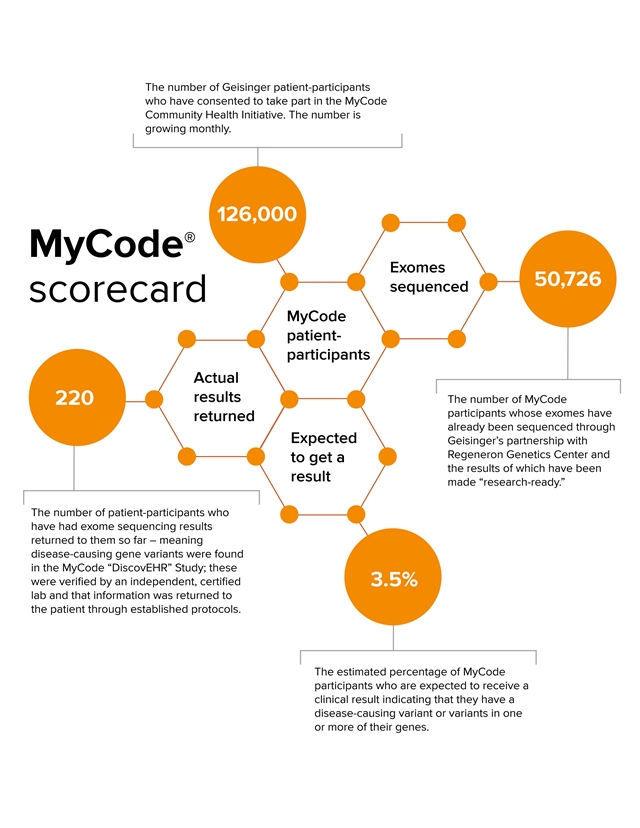23 December 2016. A program that connects mass genetic screening to electronic health records shows a segment of the population tested has an undiagnosed blood disorder causing high cholesterol levels. A report of this initiative by Geisinger Health System in Danville, Pennsylvania and Regeneron Genetics Center in Tarrytown, New York appears in today’s issue of the journal Science (free registration required).
Geisinger Health System is a health care network serving some 3 million residents of central and eastern Pennsylvania, as well as parts of New Jersey. Geisinger and Regeneron Genetics Center, a subsidiary of the biotechnology company Regeneron, began a joint program in early 2014 — reported in Science & Enterprise — to link results of whole exome screening of blood samples from Geisinger clients with the individuals’ electronic health records. Exomes account for only a small percentage of base pairs in the genome, but they represent about 85 percent of all disease causing mutations.
The Science article reports on the first analysis of data from the joint program, covering 50,726 Geisinger clients, who agreed to take part in the study and had personal identifiers in their records removed. The analysis revealed that 1 in 256 individuals in the study have a variation in at least 1 of the 3 genes associated with familial hypercholesterolemia, an inherited disorder that prevents removal of low density lipoprotein, or LDL, the “bad” cholesterol, and as a result causes high levels of LDL in the blood. In the U.S. overall, familial hypercholesterolemia occurs in about 1 in 500 individuals, who are at a much higher risk of coronary artery disease and often have a family history of early heart attacks and strokes.
When compared to data in electronic health records, the findings show only about a quarter (24%) of records offer any indication of a possible diagnosis of familial hypercholesterolemia, which suggests their conditions would have likely gone unnoticed without results from genetic tests. In addition, only a little more than half (58%) of the people with these genetic variations have a recent prescription for statins, the most common form of medication for lowering LDL levels, but less than half of this group are meeting their cholesterol level goals. The remaining 42 percent of individuals with these genetic variations are not taking any statins.
A separate analysis of genetic and electronic health record data reveals about 3.5 percent of individuals in the program have variations in 76 key disease-associated genes with potential actionable outcomes for 27 medical conditions. The analysis also disclosed people in the program have a median of 21 rare genetic variations that are predicted to lose their protein-coding functions, as well as several hundred other cases of more common loss-of-function genetic variations associated with cancer and other inherited disorders, as well as known drug targets.
Geisinger calls the genetic testing and precision medicine program for its clients the MyCode Community Health Initiative, which so far signed up 126,000 participants and returned actionable results of disease-causing genetic variations for 220 individuals. Half (110) of those variations indicate solid tumor cancers including breast, ovarian, and prostate cancer, while another 29 (13%) point to familial hypercholesterolemia.
Read more:
- NantHealth, TransMed Partner on Cancer Genomics
- Regeneron, Children’s National Partner on Rare Diseases
- Large-Scale Cancer Gene Profiling Seen as Feasible
- Commercial Genome Service Launches Based on Open Data
- Deep Sequencing Reveals 150M Rare, Unknown Variations
* * *


 RSS - Posts
RSS - Posts
[…] Genetic Tests, Elec. Health Records Show Hidden Disease […]